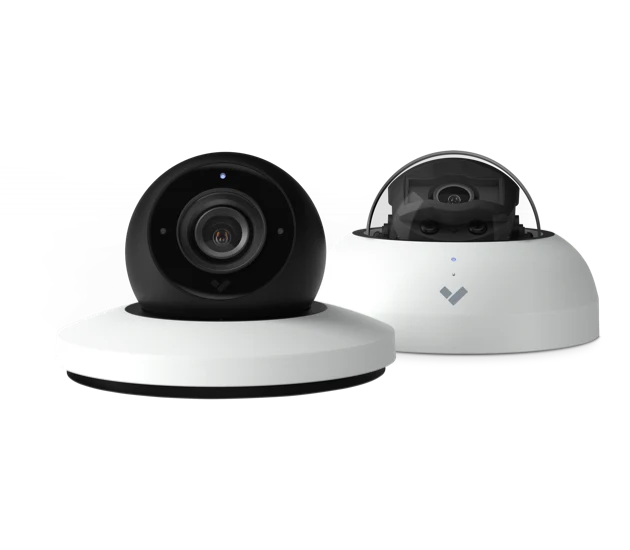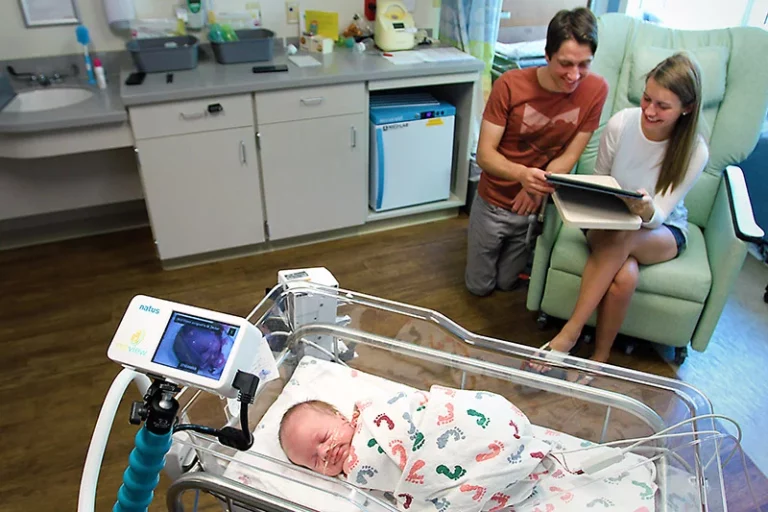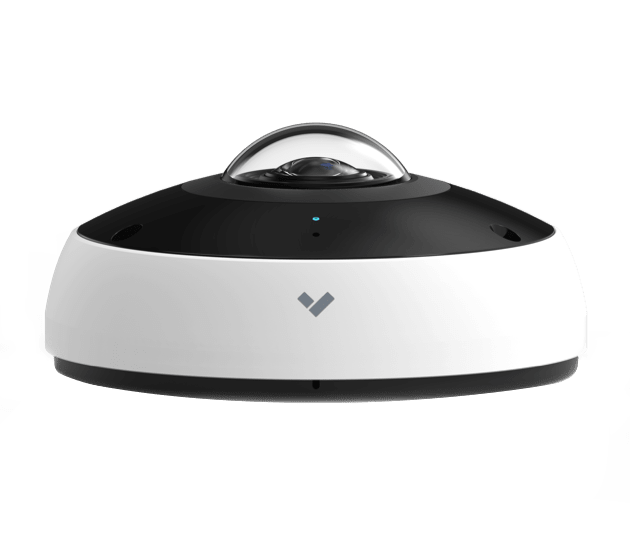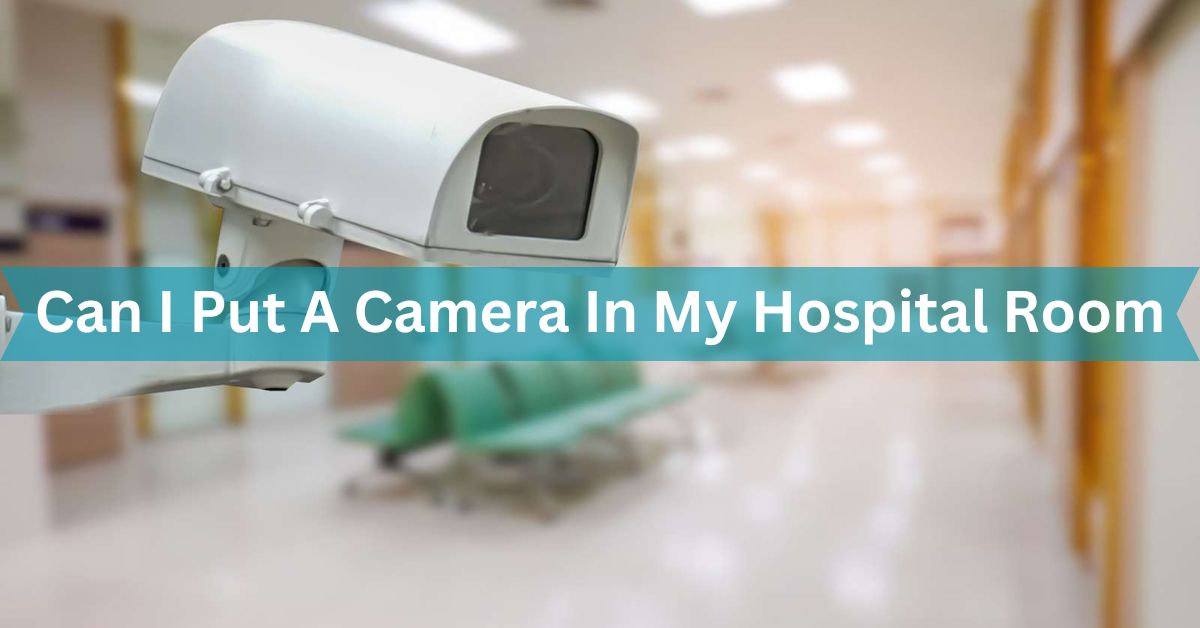Worrying about safety in a hospital is normal, especially if you or a loved one is vulnerable. This raises a common question: Can I install a camera in my hospital room?
Yes, you can put a camera in your hospital room, but it depends on the hospital’s rules and local privacy laws. Always ask permission from the hospital before doing so.
This article will discuss “Can I Put A Camera In My Hospital Room.”
Table of Contents
Legal Considerations:
Knowing the legal rules before putting a camera in a hospital room. Hospital privacy laws are strict, and local or state laws can affect whether you can install one.
HIPAA and Privacy Regulations:
What is HIPAA?
HIPAA protects patient privacy in healthcare settings. Cameras in hospital rooms could record private medical information or conversations, which may violate these strict privacy rules. Always consider HIPAA before installing one.
How HIPAA Affects Camera Use?
Hospitals are responsible for maintaining patient confidentiality, and cameras could be seen as a breach of privacy.
If the camera records anything related to a patient’s treatment or their conversations with healthcare providers, it may violate HIPAA.
Hospital Policies:
Hospitals have different rules about cameras in patient rooms. Some allow them with strict guidelines, while others do not. Always check with the hospital administration for their policy.
Informed Consent:
If a hospital allows cameras, everyone in the room, including patients, staff, and visitors, must be permitted to be recorded. Without consent, legal action or penalties may follow.
Also read: What Does Service Front Camera Mean – A Comprehensive Guide Of 2024!
Ethical Concerns:
Balancing Patient Care and Privacy:
Using cameras in hospitals raises critical ethical issues. While remote monitoring can comfort families and enhance patient safety, it may also invade the privacy of patients and staff.
Impact on Healthcare Workers:
Healthcare workers may feel uncomfortable or under pressure if they know they are being recorded. This could impact the quality of care, as the trust between patients and providers might be compromised.
Benefits of Using Cameras in Hospital Rooms:
There are several advantages to using cameras in hospital rooms, especially for vulnerable or high-risk patients.
Ensuring Patient Safety:
Cameras provide extra protection when immobile patients cannot speak for themselves. They also let caregivers check on their loved ones even when they are not there.
Peace of Mind for Families:
For families, especially those living far away, having access to a live video feed can provide reassurance that their loved one is receiving appropriate care.
Documentation and Accountability:
Cameras can also serve as an objective record of what happens in a patient’s room, providing extra accountability for healthcare providers.
Situations Where Cameras May Be Beneficial:
Monitoring High-Risk Patients:
Patients with critical conditions or cognitive impairments might benefit from continuous monitoring. Cameras can help ensure they get the care they need, incredibly if they can’t advocate for themselves.
ICU and Critical Care Settings:
In intensive care or critical care units, where constant observation is crucial, cameras could provide additional oversight without disrupting the hospital staff.
Types of Cameras to Use in Hospital Rooms:

When choosing a camera, it’s essential to consider both legal and technical aspects.
Wired vs Wireless Cameras:
Wired cameras may offer better security, while wireless cameras are more convenient but easier to hack. It’s crucial to weigh these factors before installing a camera.
How to Properly Install a Camera in a Hospital Room?
When installing a camera, make sure to position it in a way that respects privacy laws and the hospital’s policies. The camera should not capture sensitive areas like the bathroom or medical procedures.
Why don’t hospitals have cameras?
Hospitals usually don’t have cameras in patient rooms due to privacy concerns and strict laws. The recording could reveal private medical information, violating patient rights and healthcare regulations.
Can a hospital have a camera in your room?
Yes, a hospital can have a camera in your room, but they must inform you and follow strict privacy laws. Cameras are often used for safety, but patient consent is required.
Do hospital security cameras have sound?
No, most hospital security cameras do not record sound, focusing only on video for privacy reasons. However, policies vary, so it’s best to ask the hospital about their specific system.
What states allow cameras in hospital rooms?
Laws about cameras in hospital rooms vary by state. Some states allow it with consent, while others have strict rules. Always check local laws and hospital policies for details.
Why is there a camera in my hospital room?
A camera in your hospital room may be for safety and monitoring. It helps staff check on patients and ensures a secure environment, but you should be informed about it.
Do hospital rooms have cameras in Texas?
Yes, some hospitals in Texas may have cameras in patient rooms, but this varies by facility. Checking with the specific hospital about their policies and rules is essential.
Can I place a camera in my mothers hospital room?
Yes, you may be able to place a camera in your mother’s hospital room, but you must get permission from the hospital. Always follow their rules and consider privacy concerns.
Can i put a camera in my sons private hospital room?

Yes, you can request to put a camera in your son’s private hospital room, but you need permission from the hospital. Always check their rules and think about privacy issues.
Do patient surveillance cameras violate HIPAA?
Yes, patient surveillance cameras can violate HIPAA if they record private conversations or medical information without consent. Hospitals must follow strict privacy rules to protect patient rights.
What do hospital room cameras look like?
Hospital room cameras are usually small and discreet, often mounted on walls or ceilings. They can be round or rectangular and are designed to blend in with the environment.
Who has access to camera recordings?
Only authorized hospital staff, such as security personnel and specific medical staff, can usually access camera recordings. Access is controlled to protect patient privacy and comply with laws.
Do hospitals have cameras in bathrooms?
No, hospitals do not have cameras in bathrooms. This protects patient privacy and ensures a safe and private environment for all patients.
Also read: Do Film Cameras Need Batteries – An Ultimate Guide Of 2024!
Are there cameras in ICU rooms?
Yes, some ICU rooms may have cameras to monitor patient safety and care, but this varies by hospital. Always check with the specific hospital about its camera policies.
How long do hospitals keep surveillance footage?
Hospitals typically keep surveillance footage for 30 to 90 days, but this can vary by hospital. Check with the specific hospital for their exact policy.
Is it legal for inpatient hospital rooms to have surveillance cameras with no signs posted?
It is usually not legal for inpatient hospital rooms to have surveillance cameras without signs. Hospitals must inform patients and follow privacy laws to protect patient rights.
Prohibited Occasions for Hospital Room Cameras:
Hospital room cameras are usually prohibited during private conversations, in bathrooms, or when patients are changing. These rules help protect patient privacy and comply with legal regulations.
Hidden cameras in patient’s rooms allowed:

No, hidden cameras in patient rooms are not allowed. They violate privacy laws and hospital rules, which protect patient rights and confidential information.
FAQs:
1. Can I be denied the use of a camera in my hospital room?
Yes, hospitals may deny camera use based on privacy laws and their policies.
2. Do hospitals allow cameras for all patients?
No, not all hospitals allow cameras, and policies can vary significantly.
3. What should I do if my hospital doesn’t allow cameras?
Consider alternative monitoring options, such as wearable devices or remote monitoring systems.
4. How can I ensure my camera complies with legal regulations?
Always obtain informed consent from anyone who will be recorded and consult the hospital’s policies on recording devices.
5. Are there other ways to monitor patient care without a camera?
Yes, wearable technology and hospital-provided remote monitoring systems are excellent alternatives.
6. What alternatives exist to installing a camera in my hospital room?
Alternatives include requesting frequent updates from medical staff, using communication devices like baby monitors or video call apps (where allowed), or hiring a private caregiver to monitor care closely.
7. Do I need the hospital’s permission to install a camera in my room?
Yes, you must get permission from the hospital administration in most cases. Hospitals often have strict guidelines to protect the privacy of staff, other patients, and visitors, so following the proper procedures is essential.
8. What are the privacy concerns with putting a camera in a hospital room?
Installing a camera could violate the privacy of hospital staff, other patients, or visitors who enter the room. Privacy laws like HIPAA also protect the confidentiality of medical information, which could be compromised if a camera records medical information.
Conclusion:
Placing a camera in a hospital room can offer peace of mind and additional patient safety, but it comes with legal, ethical, and practical challenges. Before moving forward, it’s essential to consider hospital policies, privacy laws, and alternative solutions to ensure compliance and respect for everyone involved.

